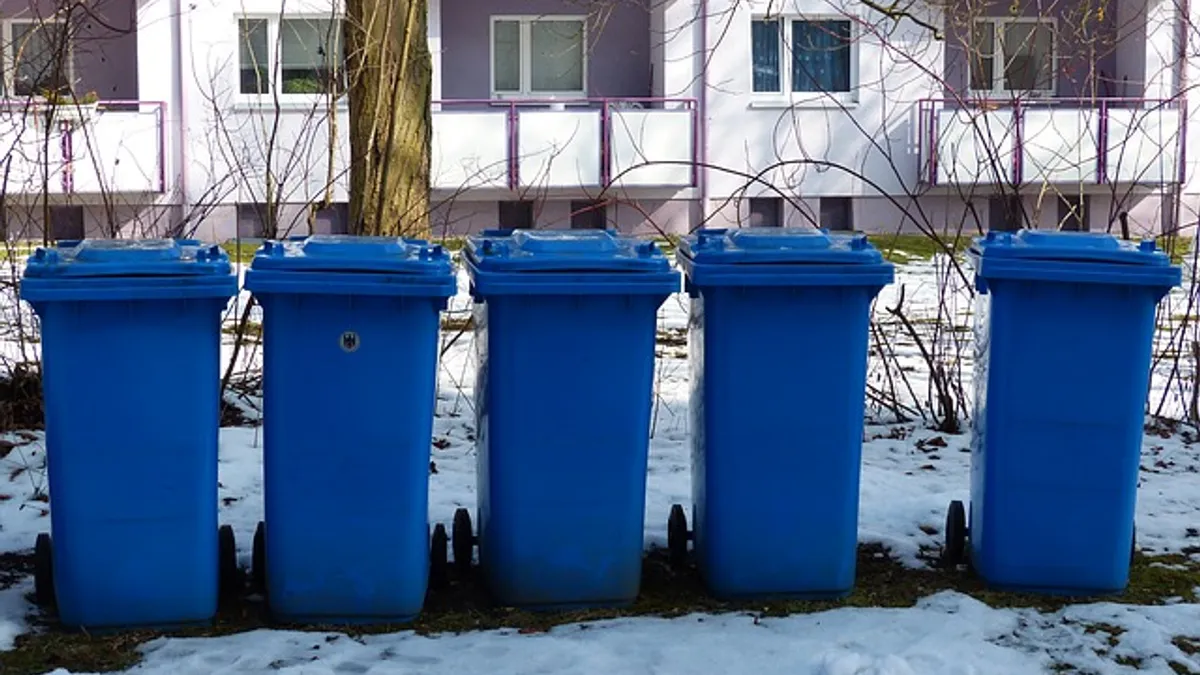Dive Brief:
- Maine residents may soon have to pay to recycle as ecomaine, the nonprofit agency that handles solid waste for Portland and more than 40 other communities, has lost $3 million in revenue from three years ago.
- For now ecomaine is riding the tide, diverting the burden from the community via cash reserves, though the organization now charges haulers a $35-per-ton fee to process recyclables at their recycling facility. The nonprofit processed an all-time high of 43,667 tons of recyclable material last fiscal year, leveraging an online outreach campaign. But the value of the materials dropped from $2.2 million in 2014 to $1.4 million last January and, further, ecomaine has also lost revenue from electricity sales.
- ecomaine General Manager Kevin Roche told the Press Herald that the company may raise its tipping fee next year by about 3%, a recommendation that will likely go before the agency’s board this month and be considered by the finance committee this fall.
Dive Insight:
More municipalities are beginning to expect consumers to pay a recycling fee to offset their costs as commodities continue to rise and fall ... but mostly fall.
Some private contractors are finding creative ways to stay afloat, such as Casella who charges customers a sustainability/recycling adjustment fee. But it's rare to find a model that can sustain recycling over the long run.
For now, ecomaine is shielding its customers from a rate increase while it has looked for alternative ways to remain viable, having asked the legislature last winter for a rate subsidy for the renewable energy the organization is also taking a hit on. But the proposal did not garner support. Therefore, it’s looking as if Greater Portland residents will likely pay for recycling in the near future.
"We have $27 million in reserves, so our balance sheet is able to withstand a downturn in the market," Roche said to the Herald. "But if this is the new normal, that’s a problem."
George MacDonald, of the sustainability division at the Maine Department of Environmental Protection, said people have gone along for some time assuming haulers are cashing in on the waste they pick up from their curbs. But he anticipates they are about to get an education.
"As long as commodity markets remain depressed, we are going to see that approach," MacDonald said to the Herald of paying to recycle. "It costs money to ... pick up materials and process them. And if the final value isn’t there, a company has to figure out how to support the services."














